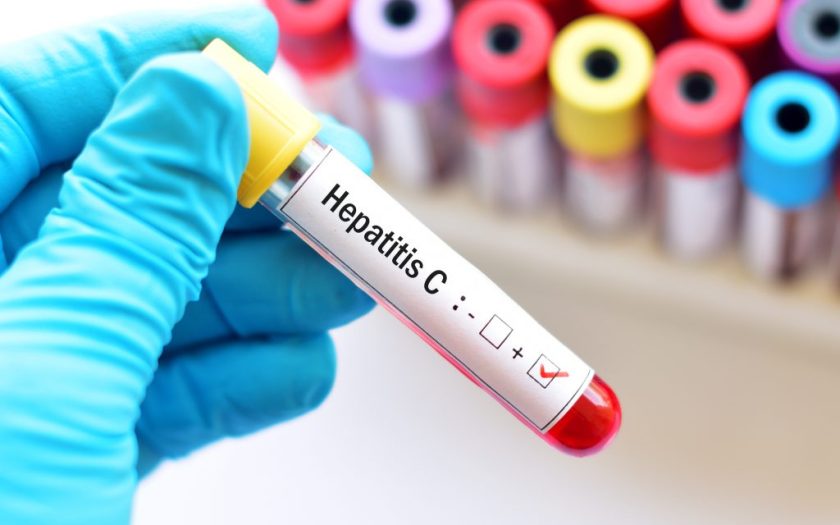Hepatitis C cause
Hepatitis C is a form of viral infection of the liver that cannot be noticed at first glance, and if not noticed in time can very quickly turn into a chronic condition and lead to cirrhosis of the liver. The hepatitis C virus can be found in every part of the world, and statistics show that 150 to 200 million people are infected with the virus, of which 75,000 are infected and have about 200 new infections each year.
Hepatitis C it is transmitted through direct contact with infected blood, through transfusion, dialysis, non-sterile piercing or tattoo tools, drug needles and, in rare cases, sexual intercourse or through the mother to the fetus. In as many as 30 percent of cases, it is not possible to find out how the infection came about. Most often, people got the hepatitis C virus through transfusions before transfusions and blood donors began testing. In the continuation of the article, we will tell you more about the symptoms and how to treat this virus.
Hepatitis C – symptoms
Hepatitis C is divided into several forms, namely mild anicteric form, icteric acute form, fulminant form and chronic form of hepatitis C. In the chronic form of hepatitis C it can develop into cirrhosis of the liver or liver cancer. Symptoms of a mild anicteric form are most often weakness, a constant feeling of tiredness for which he cannot figure out the reason, poor appetite, weight loss, nausea, fever, muscle pain and headache. These symptoms can last from 2 to 12 weeks. The fulminant form rarely occurs, only to those who already have a damaged liver.

Symptoms include jaundice, swelling of the abdominal cavity, pain in the upper right abdomen, vomiting, nausea, malaise, drowsiness, coma, confusion and disorientation. Chronic hepatitis C lasts up to 6 months, and most patients develop this form of hepatitis C because its only symptom is unexplained fatigue, which is why it is called silent disease. If not treated in time, the chronic form of hepatitis C can develop into cirrhosis of the liver or liver cancer. Symptoms of liver cirrhosis include jaundice, itchy skin, light, almost white stools, dark urine, bleeding from the right and easy bruising, loss of muscle mass, bad breath, gastrointestinal bleeding, gynecomastia in men, hepatic encephalopathy, and red spotting. body. Liver cancer cannot be recognized immediately and there are no specific symptoms for it in the initial stage.
Hepatitis C – treatment
In order for hepatitis C to be cured, it is essential to recognize it in time and diagnose it. If you notice any of the above symptoms, or you are constantly tired no matter how you live your life, how you eat and what your sleep is like, then definitely your doctor. Liver disease can usually be detected through blood tests.
At the same time, liver disease can be detected through examinations such as liver ultrasound, liver biopsy, abdominal CT and abdominal MRI. Hepatitis C is usually treated by taking a combination of interferon with another antiviral drug ribavirin taken over a period of 6 to 12 months or up to two years depending on which form of hepatitis C you have. It is also advised to change your lifestyle and to switch to a liver diet, to watch your water intake, not to overeat, not to eat a lot of fat and not to consume alcohol, as well as cigarettes and carbonated drinks.
How Do You Get Hepatitis C?
You can be exposed to the virus from:
- Sharing injection drugs and needles
- Having sex, especially if you have HIV, another STD, several partners, or have rough sex
- Being stuck by infected needles
- Birth — a mother can pass it to a child
- Sharing personal care items like toothbrushes, razor blades, and nail clippers
- Getting a tattoo or piercing with unclean equipment
You can’t catch hepatitis C through:
- Breastfeeding (unless nipples are cracked and bleeding)
- Casual contact
- Coughing
- Hugging
- Holding hands
- Kissing
- Mosquito bites
- Sharing eating utensils
- Sharing food or drink
- Sneezing
What Are the Symptoms of Hepatitis C?
- Clay-colored poop
- Dark urine
- Fever
- Fatigue
- Jaundice (a condition that causes yellow eyes and skin, as well as dark urine)
- Joint pain
- Loss of appetite
- Nausea
- Stomach pain
- Vomiting
source: webmd
